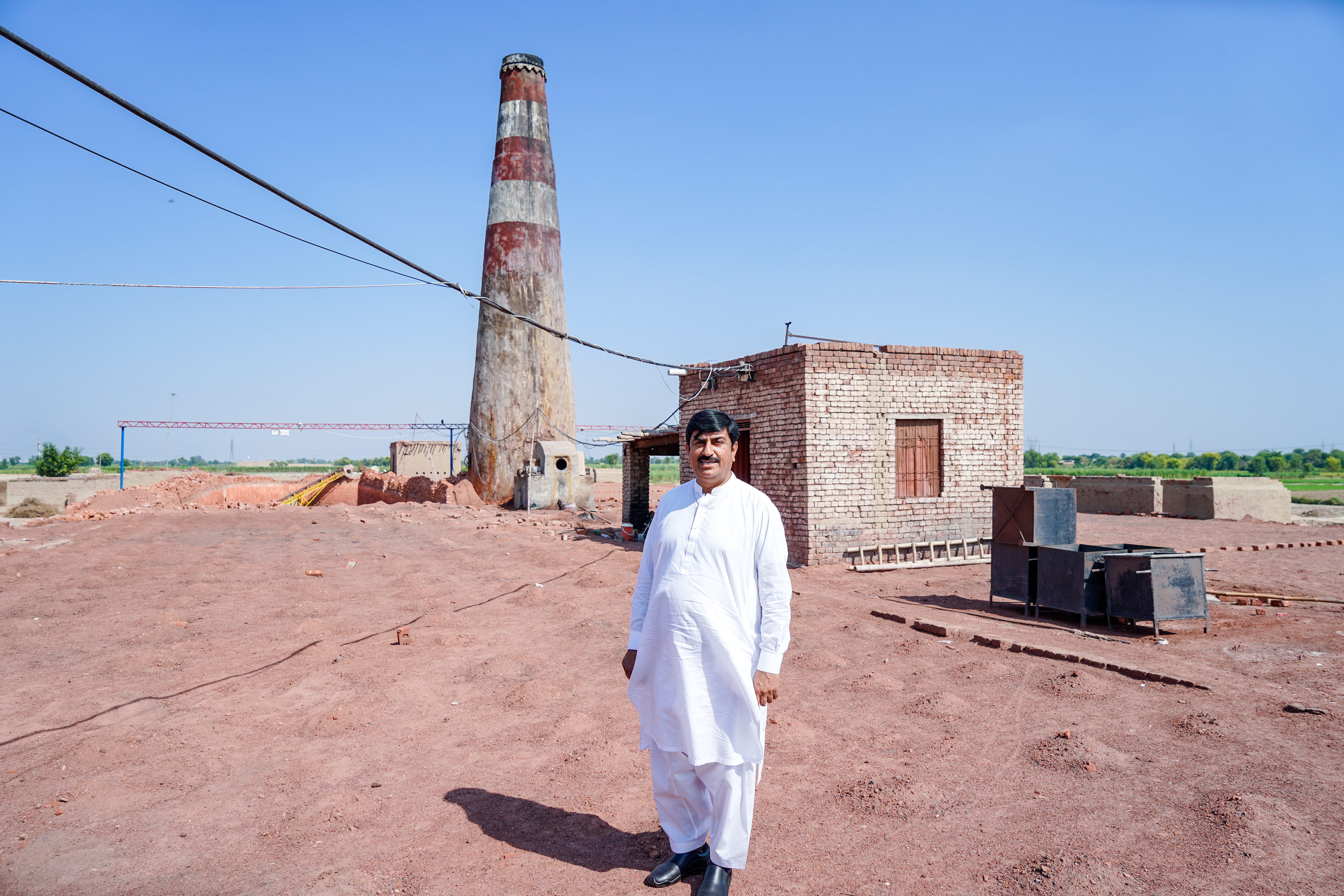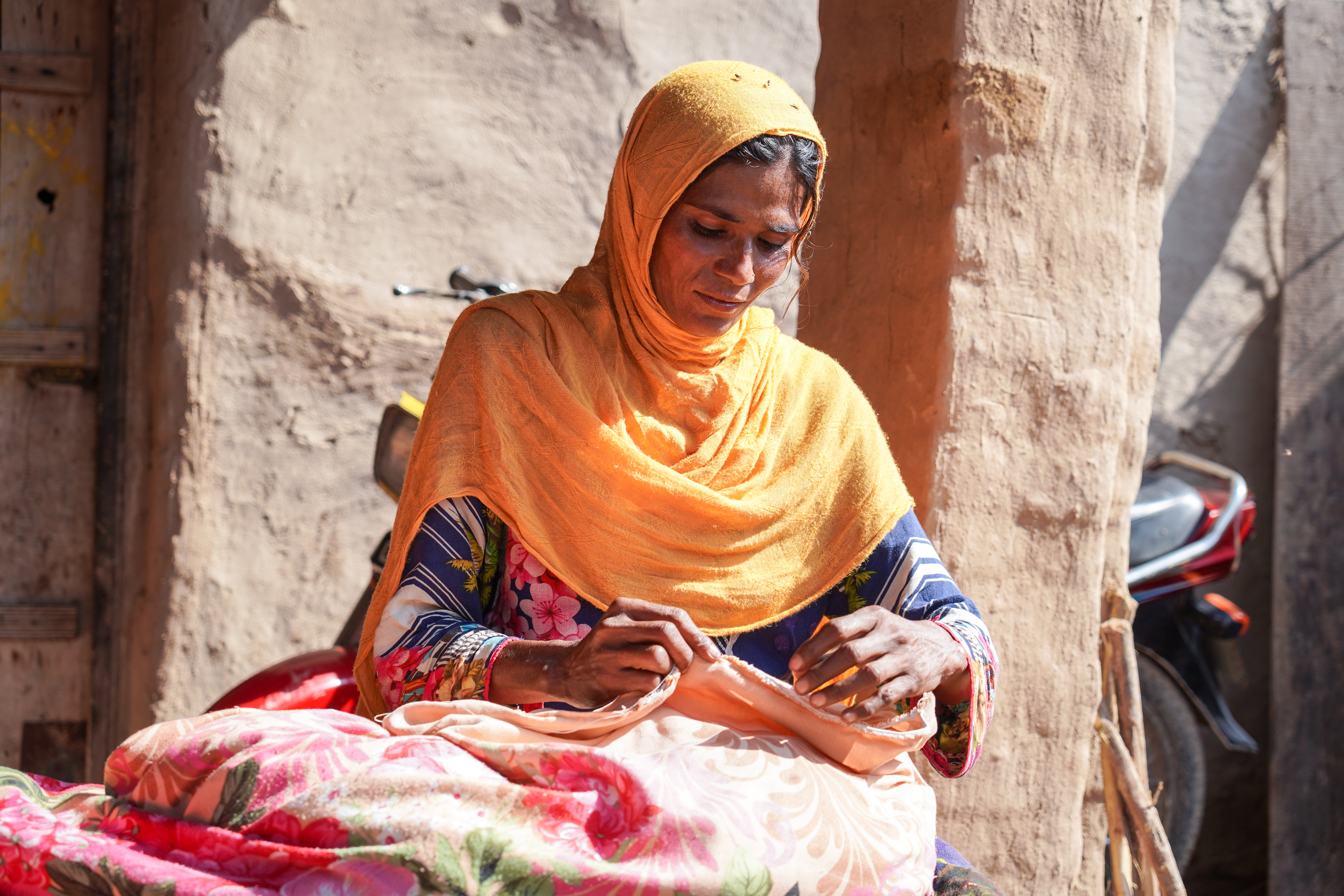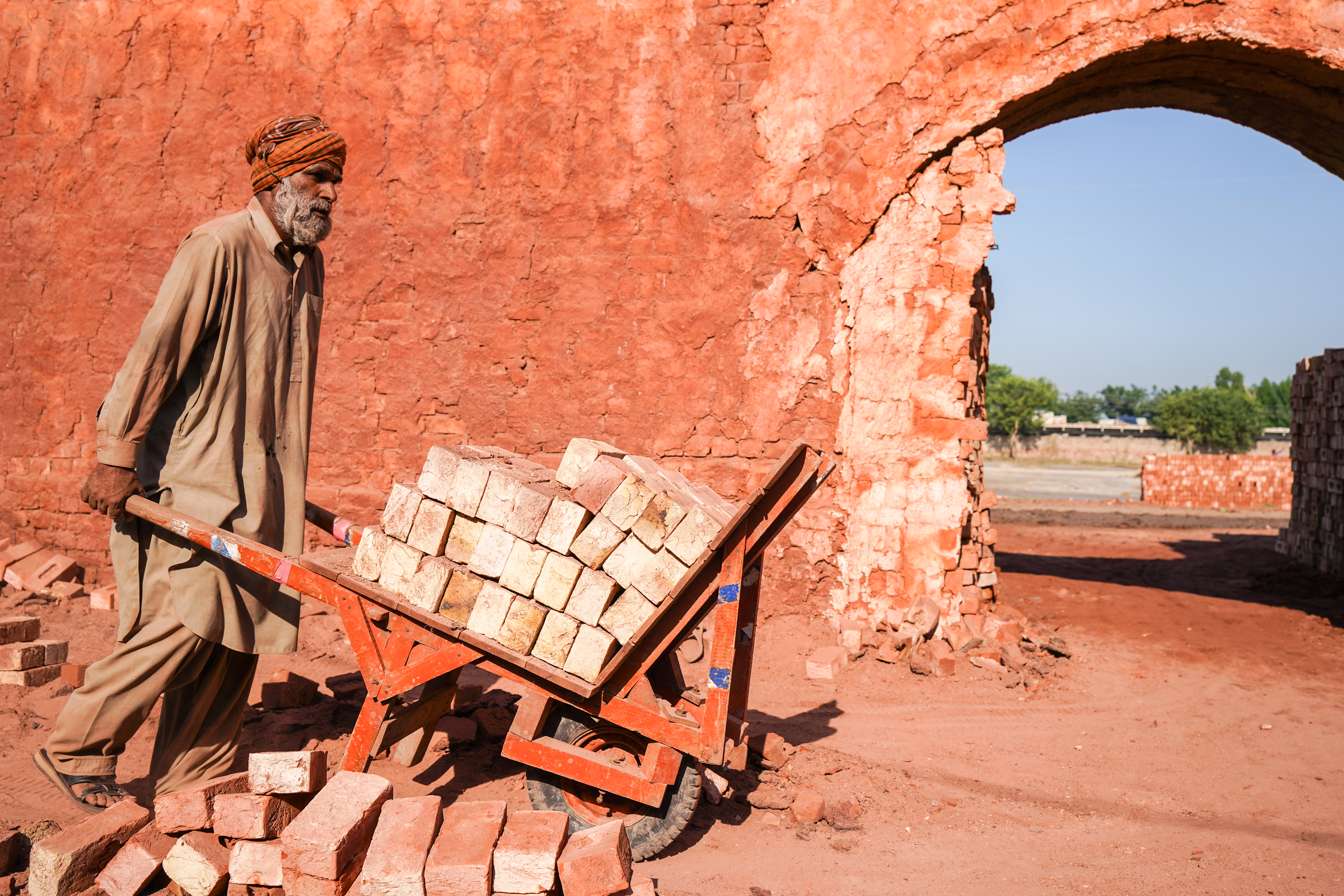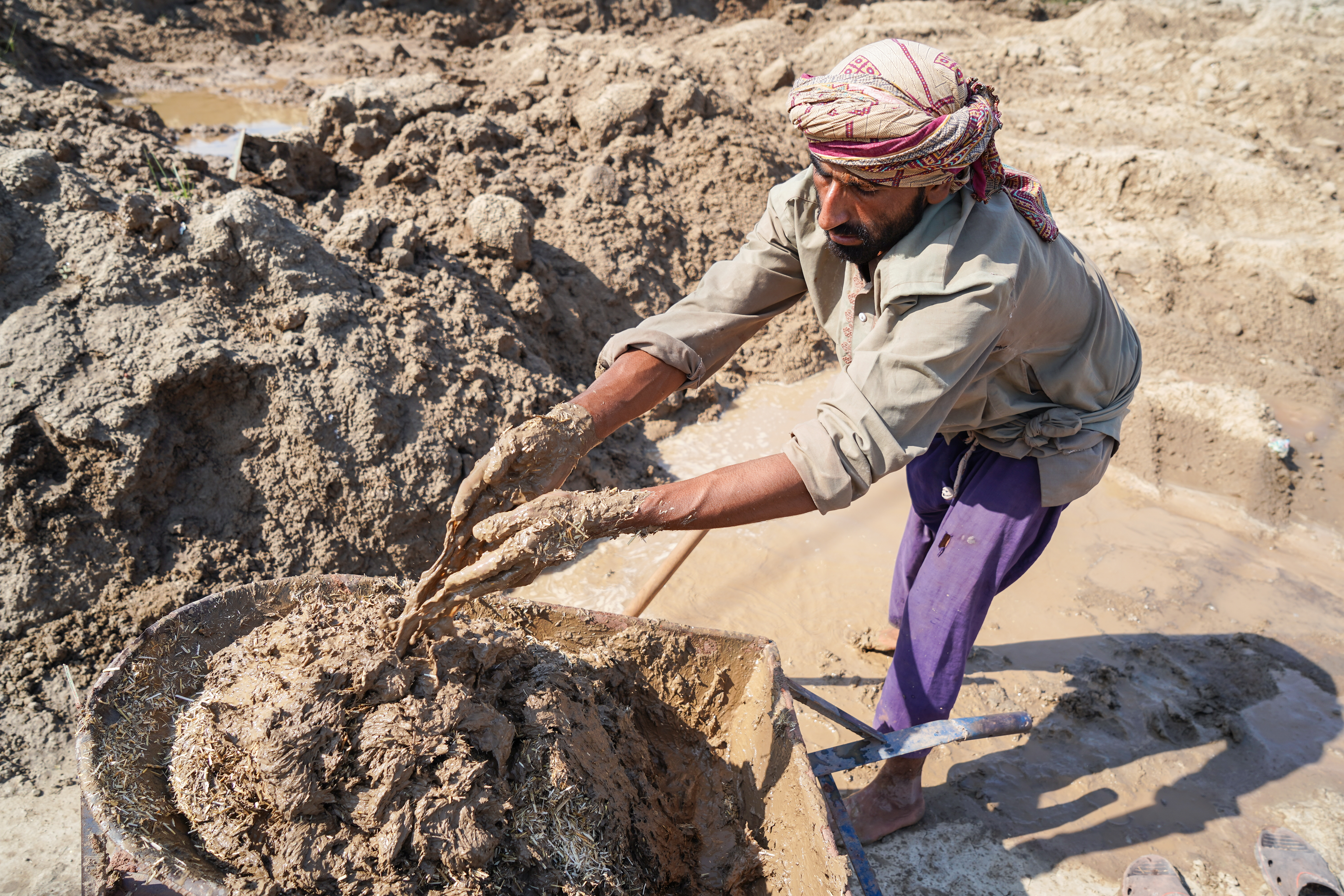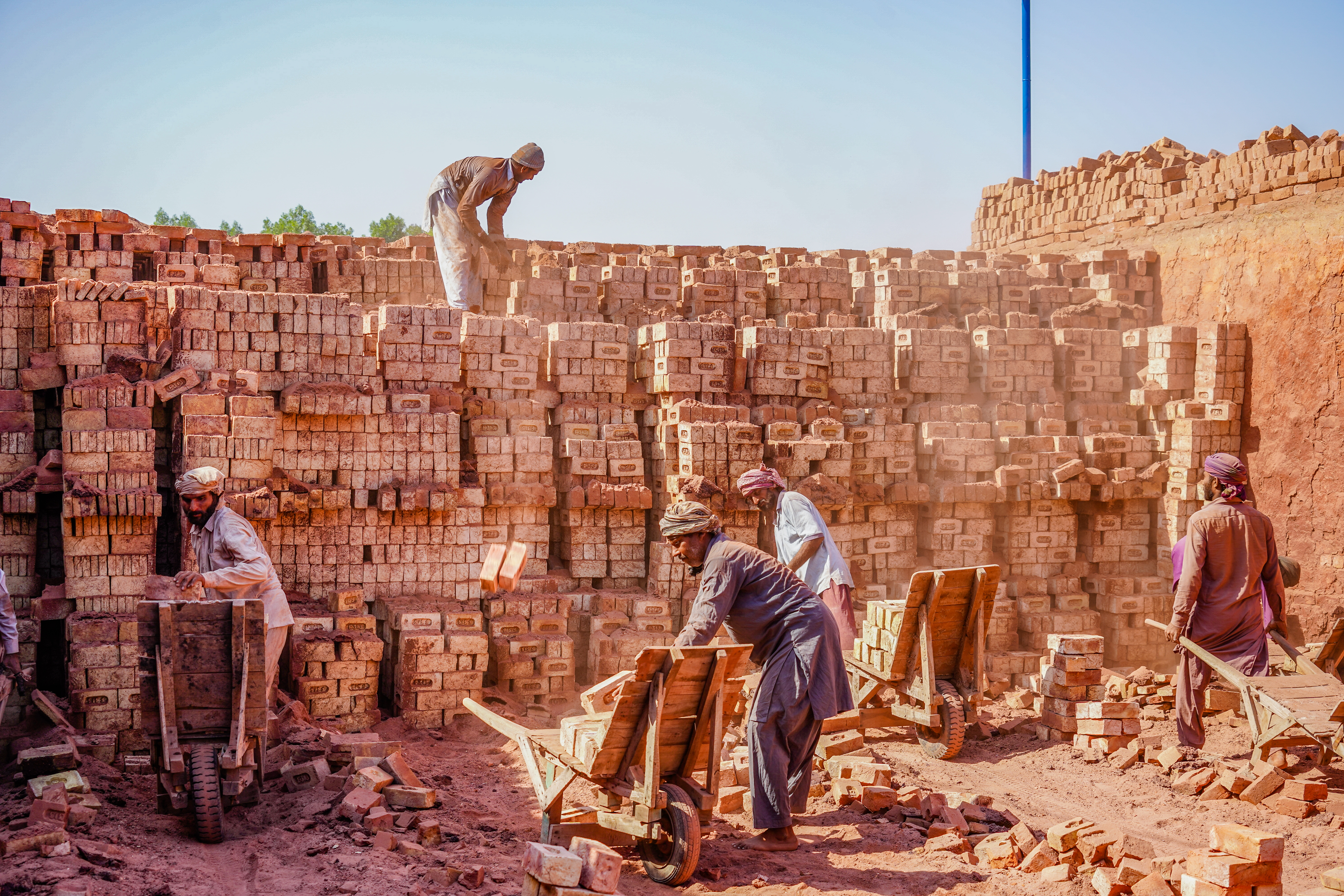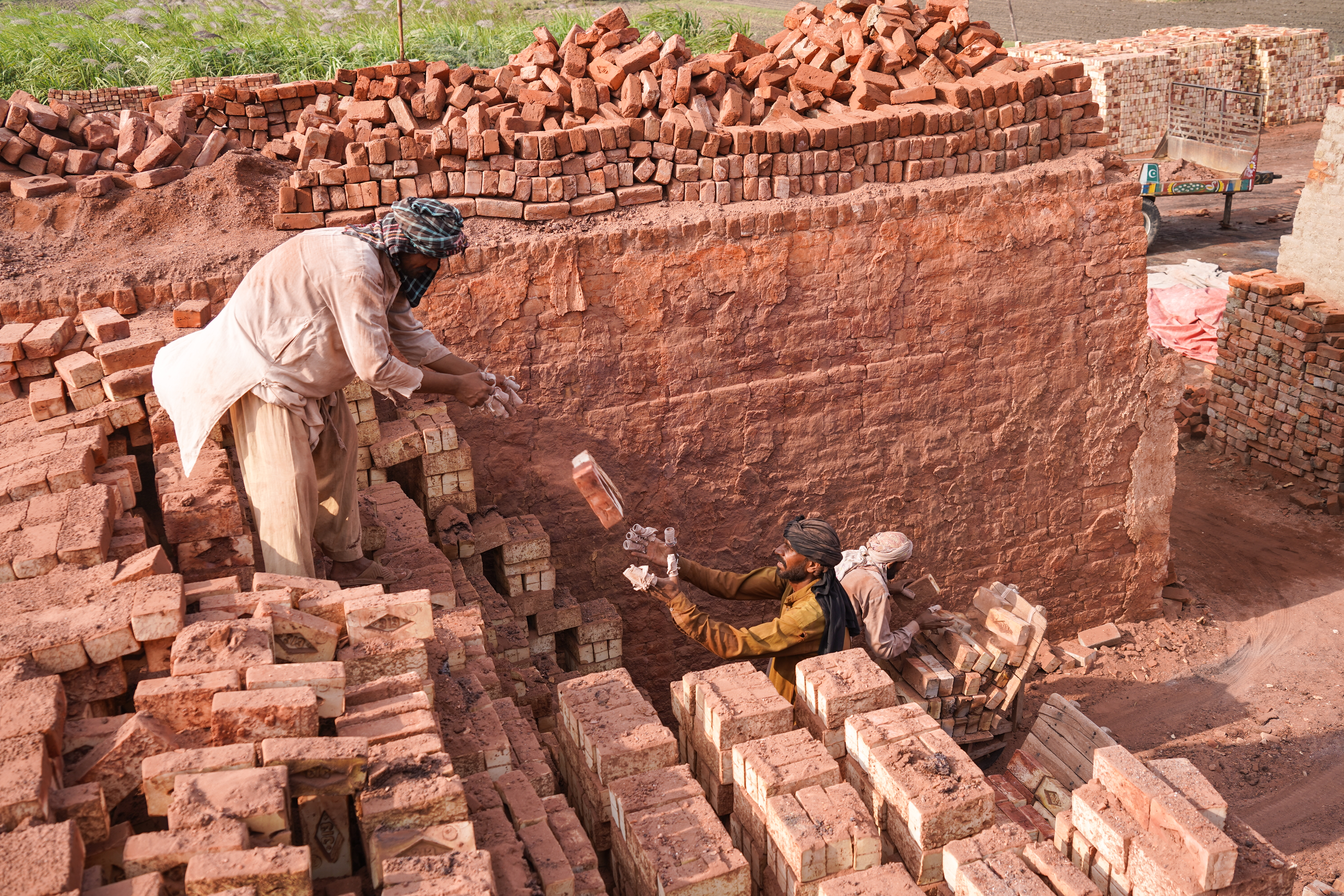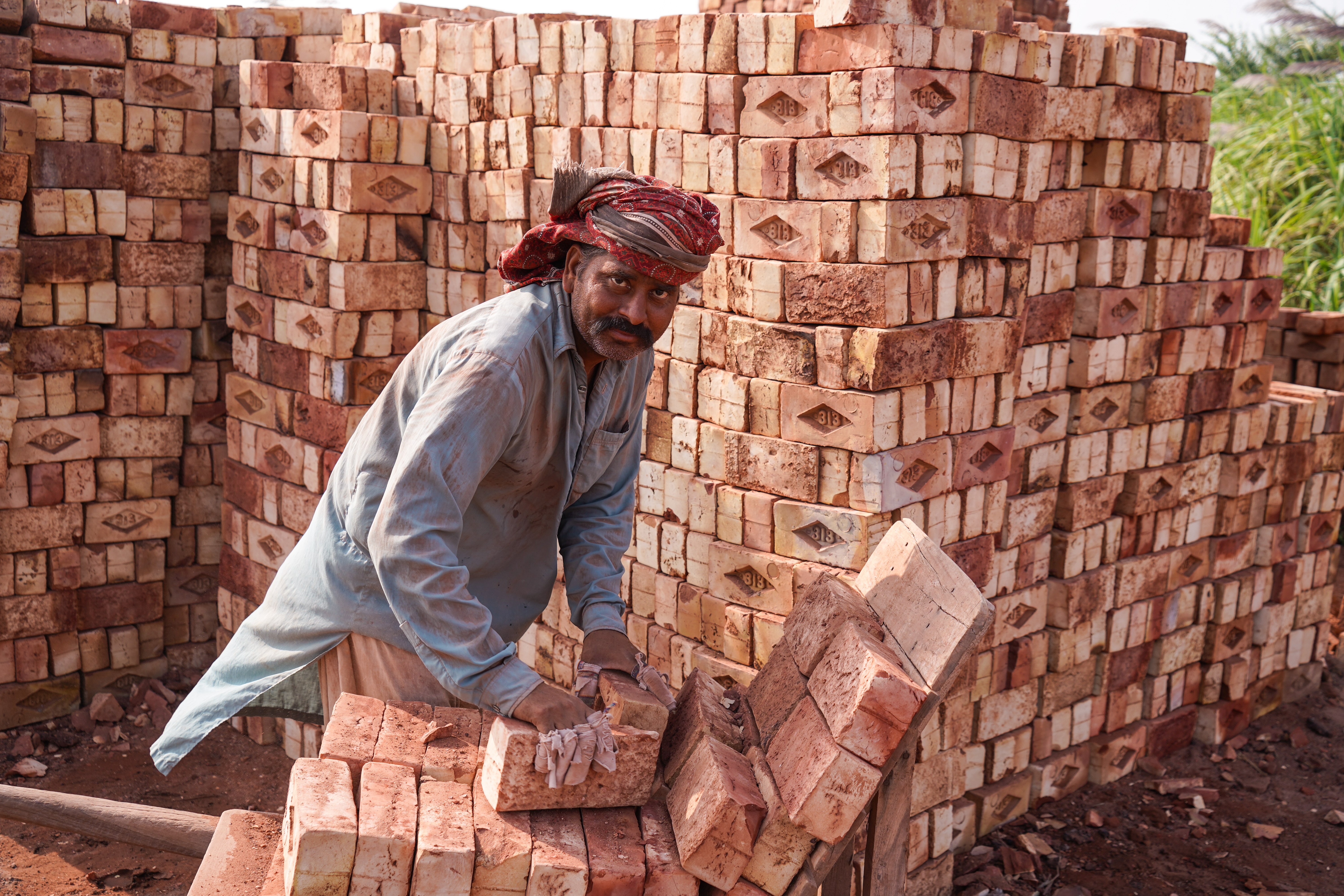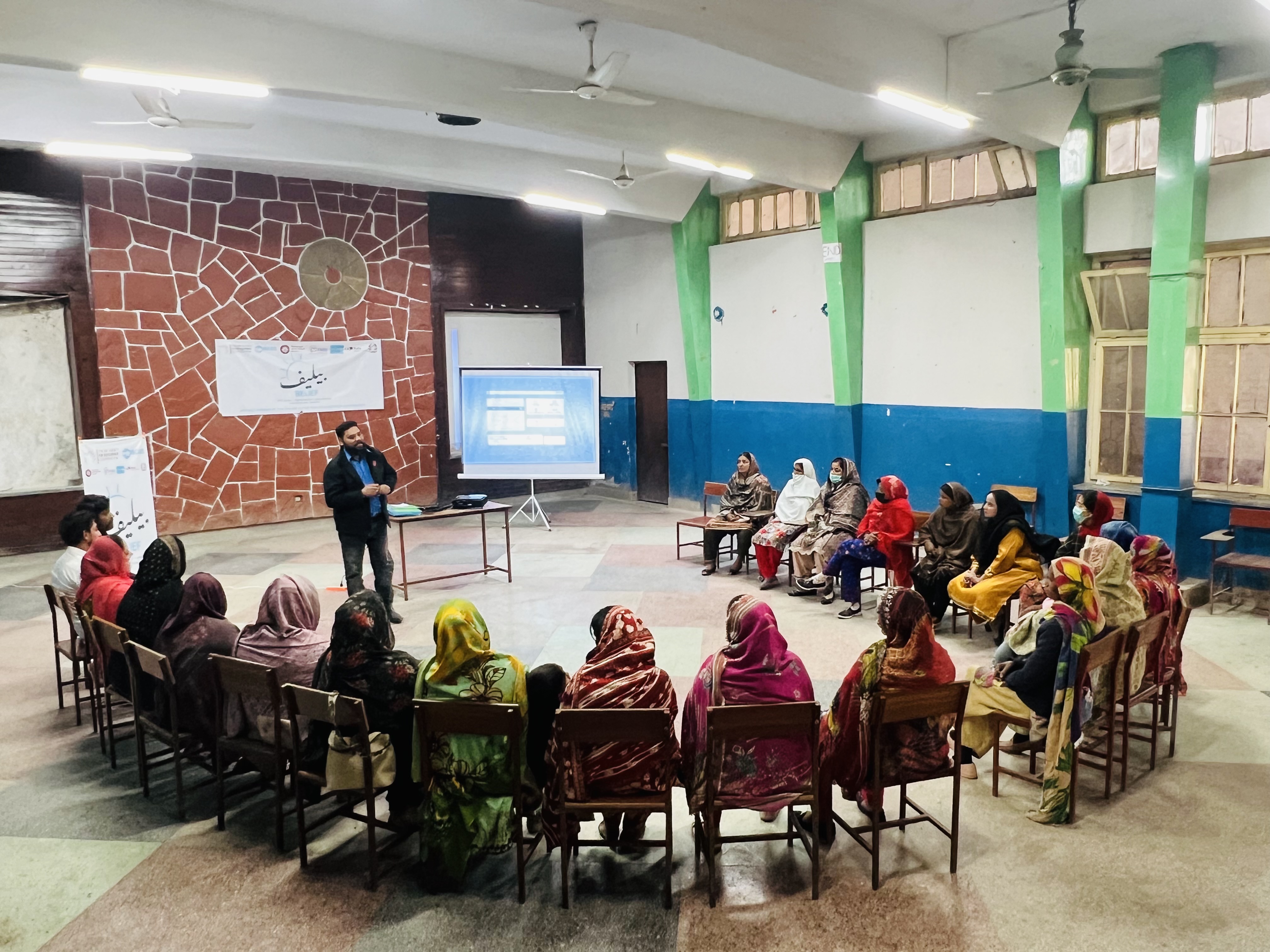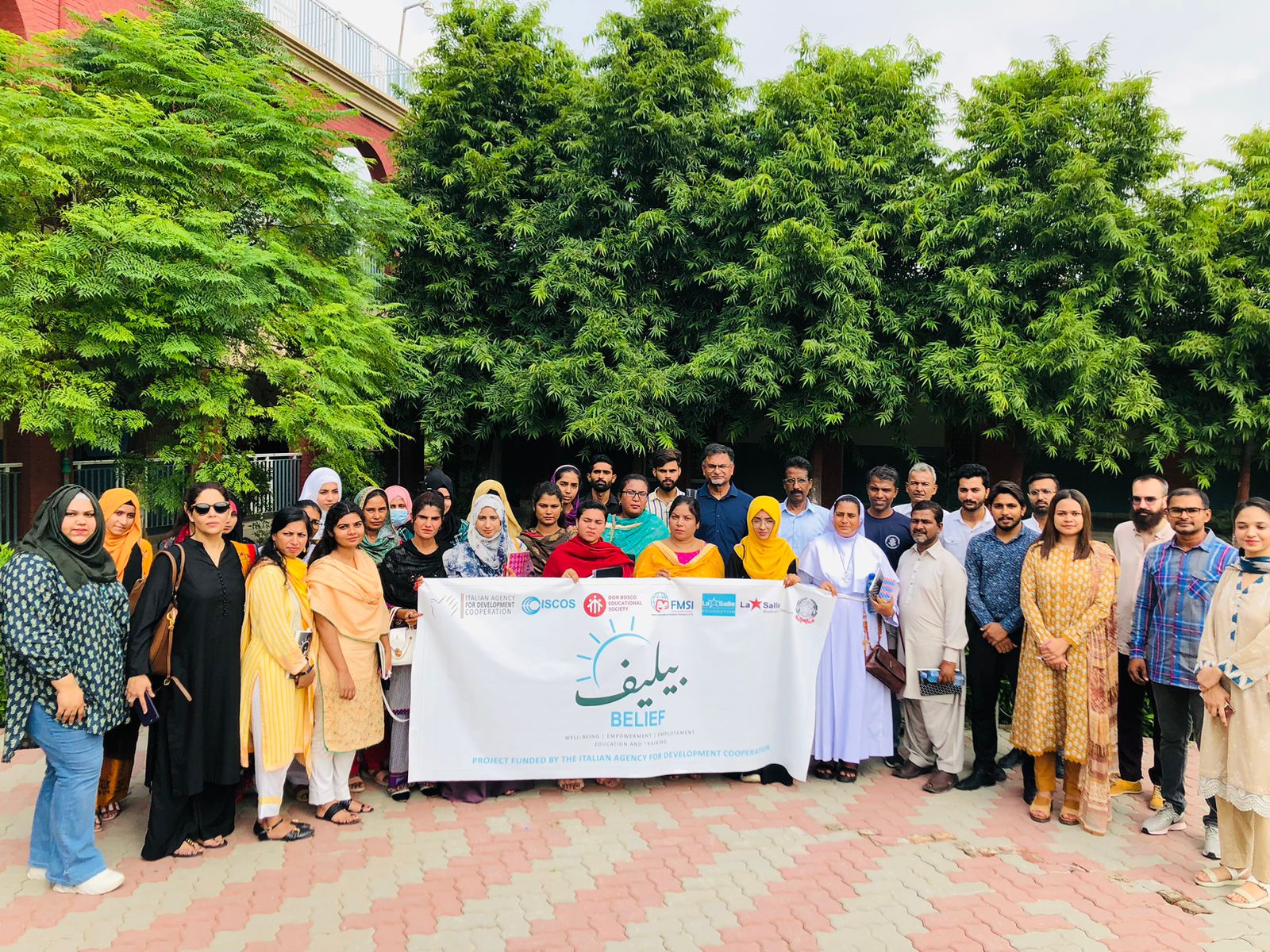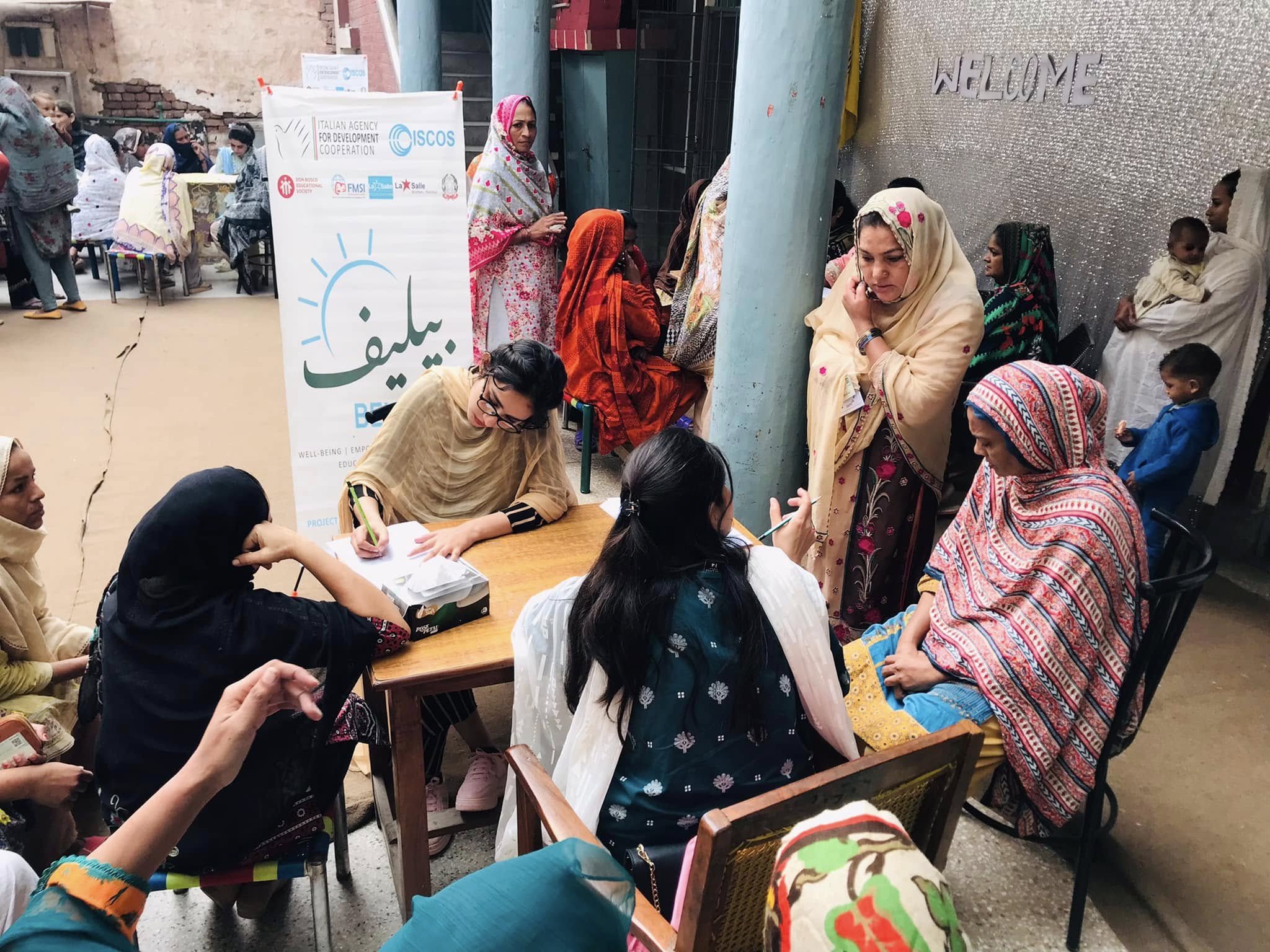SECTORAL CONTEXT
Decent work, as defined by the International Labour Organization (ILO), is based on employment that ensures fair income, safe working environments, social protection, and respect for workers’ rights. In Pakistan, achieving this goal remains a complex challenge, influenced by economic, social, and climatic factors, despite efforts by the Government and international organizations to improve working conditions and promote formal employment.
Unemployment remains high, with a particularly critical situation for young people who face greater difficulties in accessing the labour market.
Gender disparities are significant: women continue to face structural barriers due to cultural barriers and security problems, resulting in a much lower labour force participation than men (22.7%) – World Bank, 2023). A recent analysis by the ILO – International Labour Organization shows that the gender pay gap has reached 30% in the formal sector, and over 40% in the informal sector, ranking it among the highest in the world.
The construction sector is heavily reliant on seasonal and migrant workers, as well as
environmentally unsustainable practices. A particularly critical issue is the brick industry, which
is essential for post-disaster reconstruction but highly polluting. Traditional fixed-chimney Bull’s
Trench Kilns (FCBTKs) are among the main sources of greenhouse gas and black carbon emissions, contributing to global warming and negatively impacting health and air quality.
Child labour still involves some 12.5 million children between the ages of 5 and 14, often
employed in high-risk sectors such as brick kilns and agriculture5. Safety at work is Another critical issue: poor implementation of health and safety legislation leads to frequent accidents, especially in the textile and construction sectors; Women working in agriculture face hostile environments with a high risk of violence and harassment, compounded by socio-economic factors and lack of recognition awareness of their rights.
Social protection in Pakistan is extremely limited: it is estimated that only 8% of workers have access to formal social security systems.
Despite constitutional protections, minorities tend to suffer discrimination in the world of work, with jobs often limited to informal and low-skilled sectors. Social barriers and prejudices limit access to public and well-paid jobs, compromising their economic and social security.
NEED ASSESSMENT
Youth and female employment remains one of the main challenges. Investing in vocational training, certification of training programs, and innovative tools such as the National Skill Passport can facilitate the recognition of skills and reduce reliance on precarious work.
Ensuring safer working conditions, especially in high-risk sectors such as construction and agriculture, requires an overall improvement of
the regulatory environment to enable the effective implementation of existing labor laws, particularly through the expansion of inclusive
social protection programs.
Finally, ensuring equal opportunities for religious minorities through anti-discrimination measures and dedicated education and training pathways can promote fairer integration into the labor market, contributing to greater social and economic inclusion.
APPROACH
To address these challenges, AICS Islamabad’s interventions in the Education, Training, and Decent Work sector align with the objectives of the Prosperity pillar of AICS’s TOC, contributing to the achievement of SDG 8, particularly target 8.5, which aims to ensure full employment and decent working conditions for all, with a special focus on youth and women. The initiatives promoted enhance job quality, reduce inequalities in access to employment, and strengthen the capacities of local institutions, fostering more sustainable and inclusive development. In Khyber Pakhtunkhwa, actions focus on transitioning to a more sustainable economy by modernizing brick kilns to reduce environmental impact and improve working conditions. At the same time, vocational training programs and access to employment in sustainable construction and ecotourism sectors are being strengthened, with a specific focus on women and youth. These interventions develop specialized skills and professional certifications, increasing employment opportunities in growing industries.
In the Punjab province, the focus is on the socio-economic inclusion of the most vulnerable communities by ensuring greater access to
vocational training and improving working conditions. Employment opportunities for youth and adults are being strengthened while
simultaneously promoting an environment conducive to dialogue and social cohesion.
Credits ILO, ISCOS
